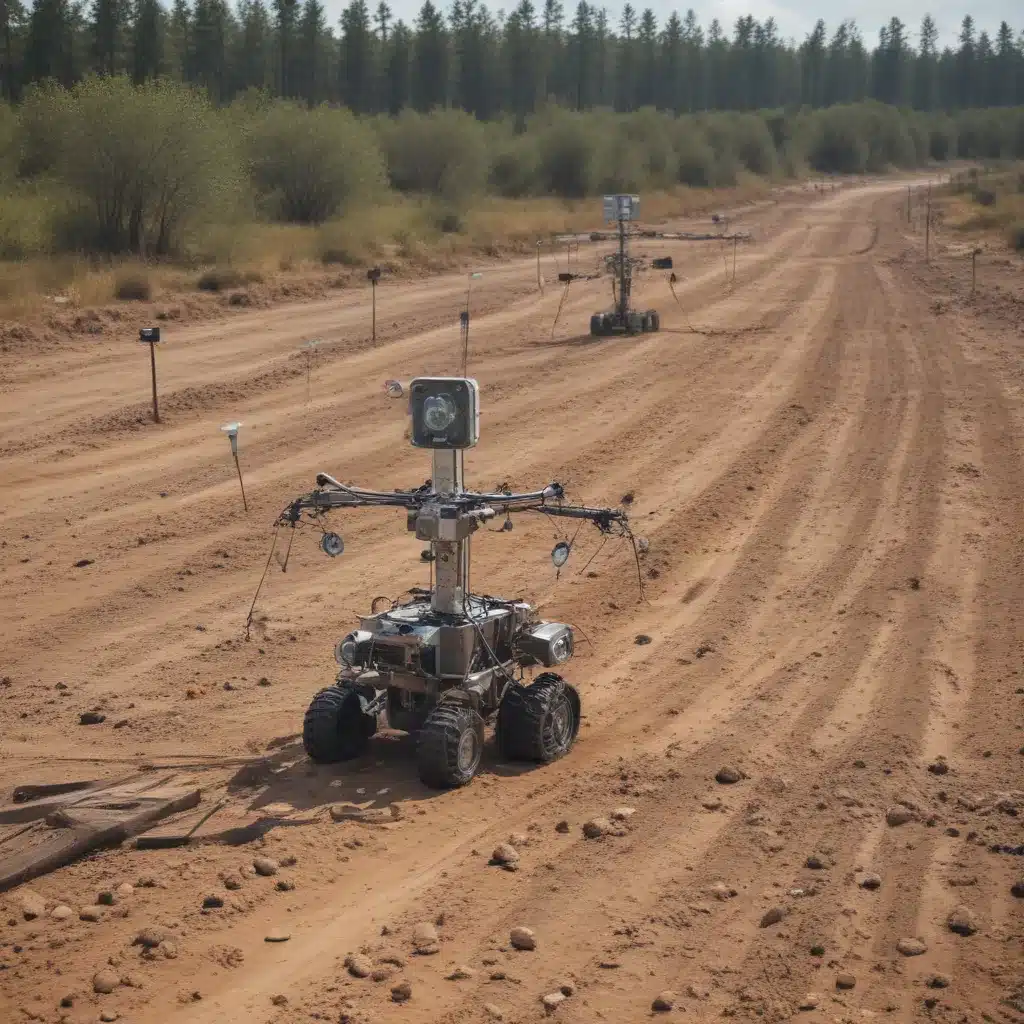
The Evolving Landscape of Artificial Intelligence
I have been observing the rapid advancements in artificial intelligence (AI) with a mix of fascination and trepidation. The potential of this technology to transform our world is undeniable, yet the ethical quandaries it presents are equally profound. As an organization dedicated to responsible technology, Itfix.org.uk has a vested interest in ensuring that the development and deployment of AI systems are aligned with the highest moral and ethical standards.
The subject of ethical AI is a complex and multifaceted one, encompassing a range of issues that deserve careful consideration. From the potential for algorithmic bias to the challenges of AI transparency and accountability, the path forward is strewn with ethical minefields that require thoughtful navigation.
Algorithmic Bias: Uncovering Hidden Prejudices
One of the primary concerns surrounding the use of AI systems is the risk of perpetuating or even amplifying existing societal biases. The algorithms that power these systems are not inherently neutral; they are built by humans, who inevitably bring their own biases and preconceptions into the design process. This can lead to the development of AI models that discriminate against certain individuals or groups based on factors such as race, gender, or socioeconomic status.
I have seen numerous examples of such algorithmic bias in action, from facial recognition systems that struggle to accurately identify people of color to predictive policing algorithms that disproportionately target minority neighborhoods. These biases can have far-reaching consequences, further entrenching existing inequalities and undermining the principles of fairness and justice that should be at the heart of any ethical AI system.
Transparency and Accountability: Lifting the Veil of Complexity
Another crucial aspect of ethical AI is the need for transparency and accountability. Many AI systems, particularly those powered by machine learning algorithms, operate as “black boxes,” with the decision-making process obscured from both users and the general public. This lack of transparency can make it challenging to understand how these systems arrive at their conclusions, let alone hold the developers and deployers accountable for any negative outcomes.
Addressing this challenge requires a multifaceted approach, involving collaboration between AI developers, policymakers, and the broader public. I believe that there must be a concerted effort to develop robust frameworks for ensuring the explainability and interpretability of AI systems, empowering stakeholders to scrutinize the decision-making process and hold the responsible parties accountable.
The Human-AI Interaction Conundrum
As AI systems become increasingly integrated into our daily lives, the question of how to navigate the complex and evolving relationship between humans and these technologies becomes paramount. From the ethical implications of autonomous decision-making systems to the potential for AI-driven social manipulation, the interactions between humans and AI raise a host of thorny issues that demand careful consideration.
One particularly challenging aspect of this human-AI interaction is the potential for AI systems to exert undue influence over human decision-making, particularly in sensitive domains such as healthcare or finance. I have seen how AI-powered recommendation systems can subtly nudge users towards certain choices, often without their full awareness or consent. This raises concerns about the preservation of human agency and the need to ensure that AI systems do not unduly infringe on our autonomy and free will.
Ethical Frameworks for Responsible AI Development
Addressing the ethical challenges of AI will require the development of comprehensive and forward-looking frameworks to guide the responsible development and deployment of these technologies. This task is not an easy one, as it necessitates balancing the potential benefits of AI with the need to mitigate its risks and potential harms.
One approach that I believe holds promise is the adoption of ethical principles and guidelines that can serve as a North Star for AI developers and deployers. Organizations like the IEEE and the OECD have already put forth initiatives that outline key ethical considerations, such as the need for AI systems to be transparent, accountable, and respectful of human rights.
Cultivating an Ethical AI Ecosystem
Ultimately, addressing the ethical challenges of AI will require a concerted effort from a wide range of stakeholders, including policymakers, industry leaders, academic researchers, and the general public. I believe that by fostering a collaborative and multi-stakeholder approach, we can work towards the development of an ethical AI ecosystem that prioritizes the wellbeing of individuals and society as a whole.
This will involve not only the establishment of robust regulatory frameworks and industry standards, but also the cultivation of a culture of ethical AI development that permeates every aspect of the technology ecosystem. It will require ongoing dialogue, education, and a willingness to grapple with the inherent complexities and uncertainties that come with the rapid advancement of AI.
Navigating the Path Ahead
As I look to the future, I am both hopeful and apprehensive about the role that AI will play in shaping our world. I am confident that, with the right approaches and a genuine commitment to ethical principles, we can harness the power of this technology to address some of humanity’s most pressing challenges. At the same time, I am acutely aware of the myriad ethical pitfalls that lie ahead, and the need for constant vigilance and a willingness to adapt as the landscape continues to evolve.
The journey towards ethical AI will not be an easy one, but I believe it is a necessary and worthwhile endeavor. By working together to navigate these tricky ethical minefields, we can ensure that the development and deployment of AI systems are aligned with our deepest values and aspirations as a society.












